Fifa boss Sepp Blatter's questioning explained
- Published
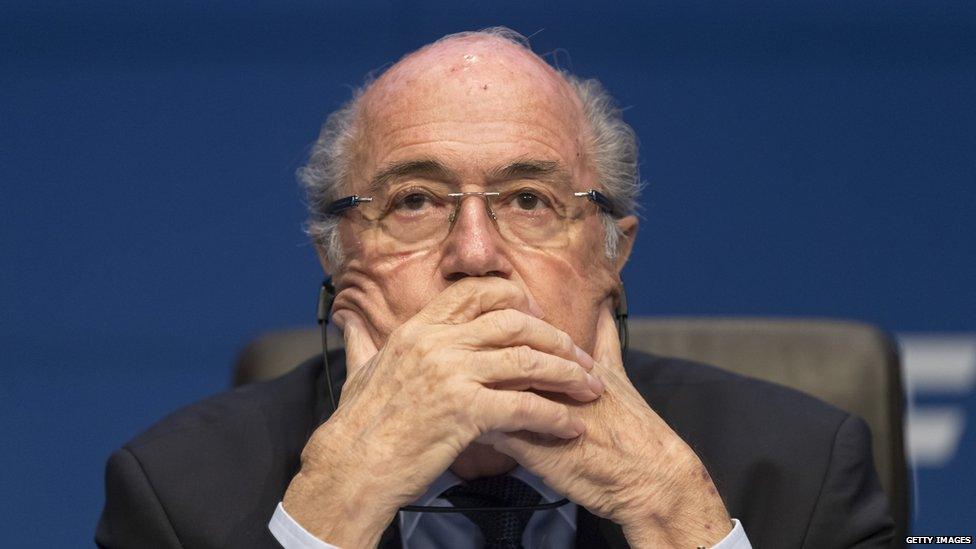
Football's most powerful man, Sepp Blatter
Swiss prosecutors have opened a criminal investigation into Sepp Blatter, the head of the world football body Fifa.
The Swiss allege that Mr Blatter signed a contract that was unfavourable to Fifa and had made a "disloyal payment" to the head of the European football association (Uefa) Michel Platini.
Here's a look at some key questions surrounding the case.
Is this important?
Yes. Fifa has been dogged by allegations of corruption for years, and there have even been successful prosecutions against its executives. However, Sepp Blatter has always remained above the fray, though he has looked an increasingly isolated figure since the arrest of key lieutenants in May.
Indeed, these arrests forced him to announce that planned to step down as Fifa president. It is noticeable that since the corruption scandal broke, he has not been visiting countries that have an extradition treaty with the US.
I thought the FBI were investigating Fifa?
They are, along with a separate Swiss investigation.
Switzerland actually arrested seven Fifa officials for the FBI in May, after they were indicted with corruption. The US then revealed indictments for seven others, making it a total of 14 people charged with racketeering in relation to football.
Hours after these arrests, the Swiss opened their own criminal investigation into Fifa. One Fifa vice-president, Jeffrey Webb, has already been extradited to the US and charged with corruption.
What is the "unfavourable" contract?
This is the big question, which in all likelihood will be tied to the sale of TV rights for the World Cup and other tournaments. Essentially, Fifa owns the rights for the tournament as whole, but hands them to individual regional associations to sell.
The associations then keep the profits. The implication is that Mr Blatter allegedly sold the rights for less than their market value in order to win favour with the Caribbean and North American football association (Concacaf).
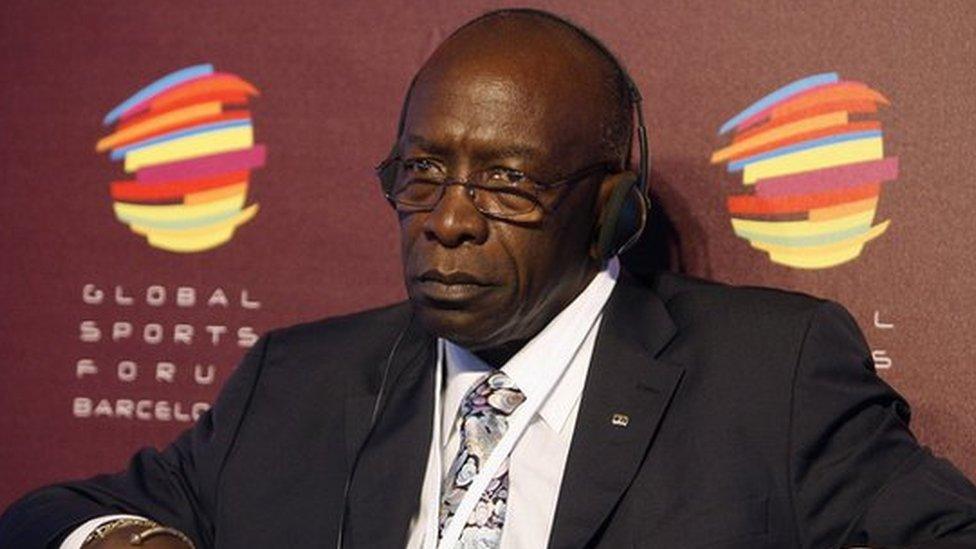
Jack Warner is accused of decades of corruption
Who did he sell them to?
The deal that the Swiss authorities have highlighted involves a 2005 contract between Fifa and Concacaf. Its head at the time was Jack Warner, who is now awaiting extradition to the US on corruption charges relating to the sale of TV rights.
Mr Warner was famously close to Mr Blatter and was well known as one of world football's leading powerbrokers. Two of Mr Warner's sons have already pleaded guilty to corruption and are cooperating with the FBI.
Earlier, this month the Swiss broadcaster SRF uncovered a 2005 contract between Fifa and Concacaf for the sale of the rights for the 2010 and 2014 World Cups for $600,000 (£395,269; €537,080). Concacaf's president Jack Warner then reportedly sub-licensed the rights to his own company before selling them for about $18m in 2007 - a tidy profit.
It is unclear whether this is the deal that the Swiss authorities are referring to, but it does seem to show that Fifa had grossly undervalued its own TV rights. By anyone's calculation, this would be an "unfavourable" deal for the company.
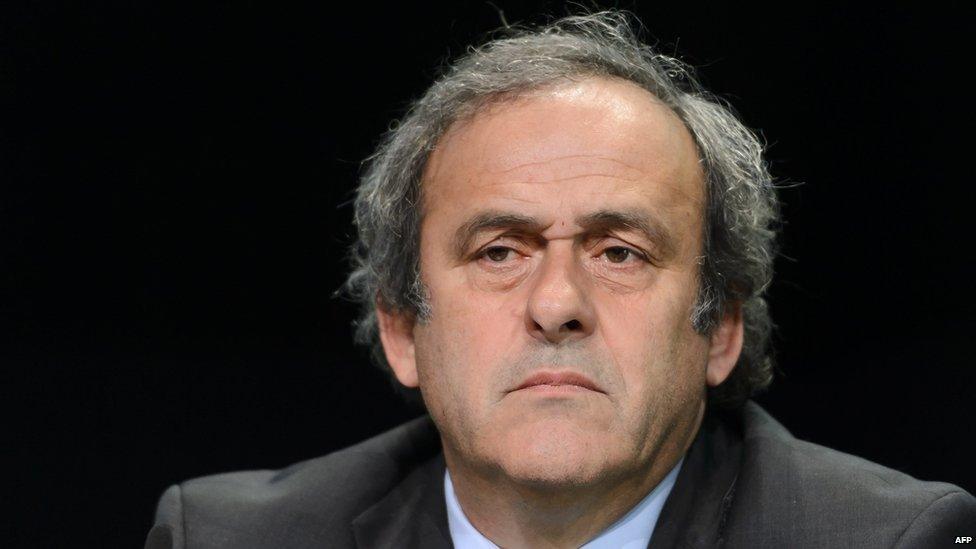
Michel Platini was also questioned by Swiss authorities
How is Michel Platini involved?
Michel Platini, the head of the European federation UEFA, is expected to succeed Mr Blatter in February. It is not clear if he is in legal jeopardy. The Swiss say they have questioned him and that he received a payment of 2m Swiss francs (£1.3m, €1.8m, $2m) from Mr Blatter. Although the payment was not made until 2011, the Swiss say it relates to work between 1999-2002. Mr Platini first became a senior member of Fifa in 2002. Because this payment is one of the charges against the Fifa president, it is unclear where it leaves his European counterpart.
Will this affect the Qatar 2022 World Cup?
The tournament has been dogged by corruption allegations but nothing has ever been proved. Mr Blatter supported the Qatari bid and even helped move its date from summer to winter. The announcement of a criminal investigation against the Fifa president could increase pressure for the host country to be changed.
- Published21 December 2015
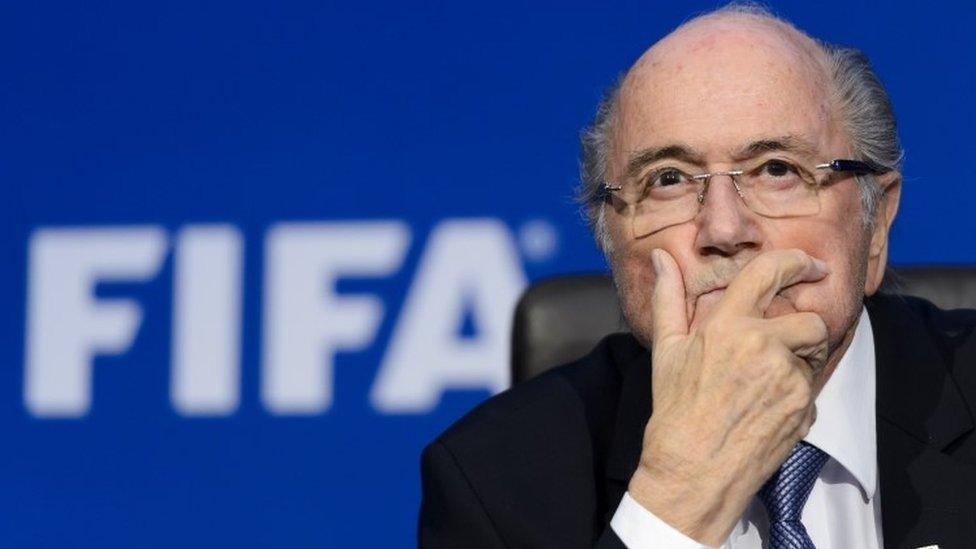
- Attribution
- Published25 September 2015
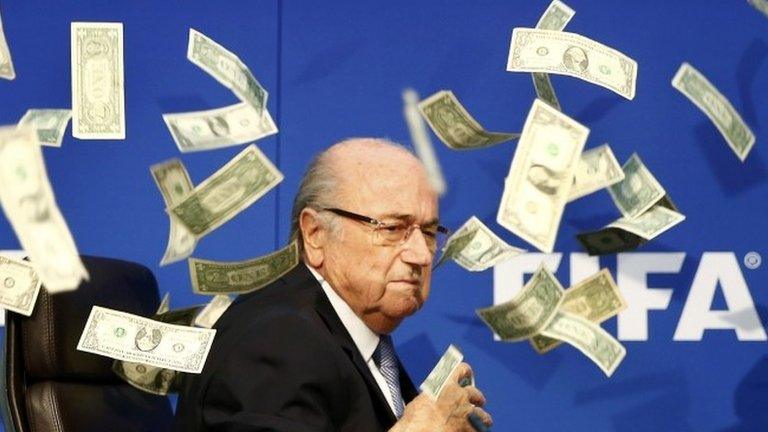
- Attribution
- Published21 December 2015
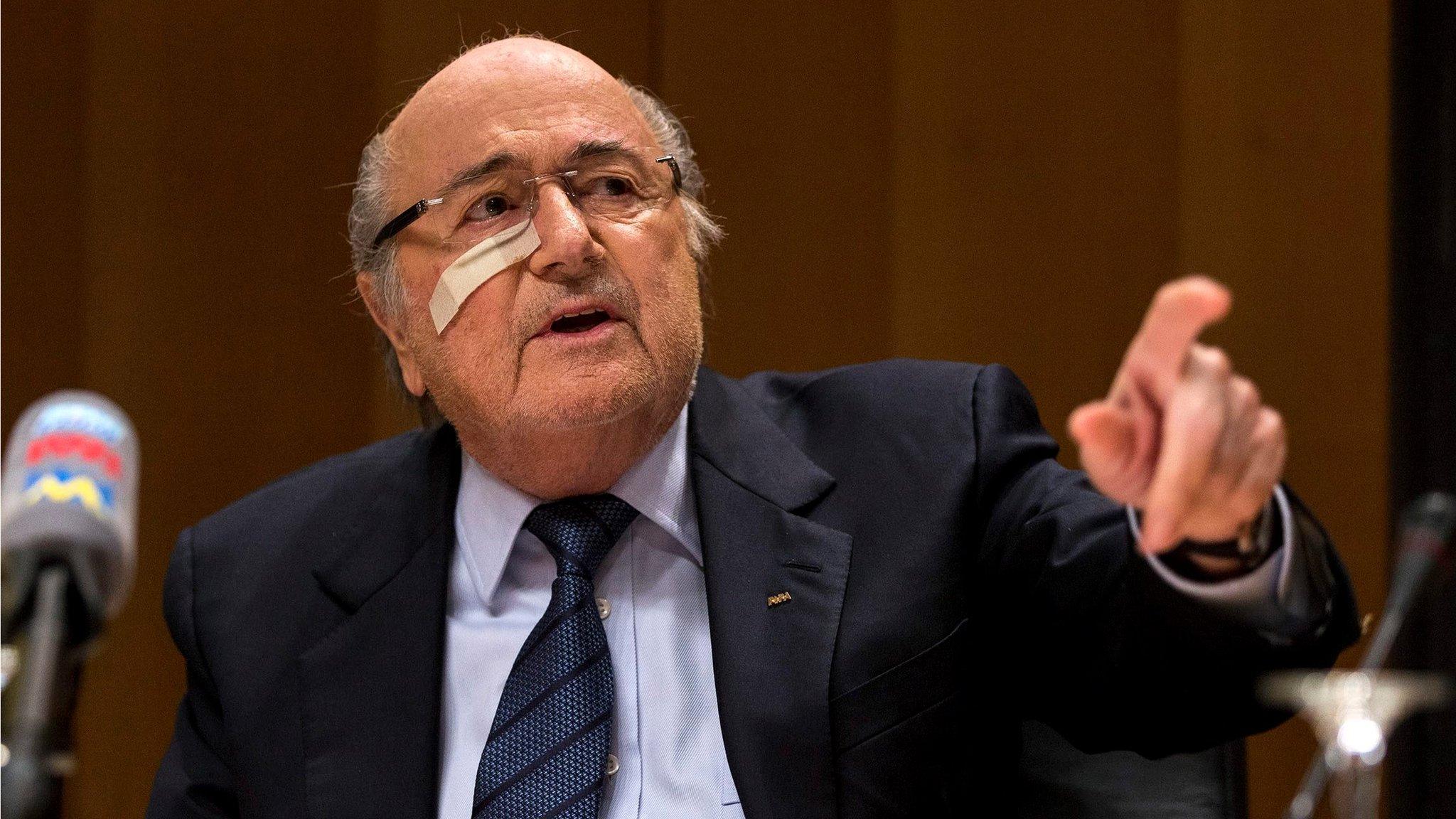
- Attribution
- Published24 August 2015